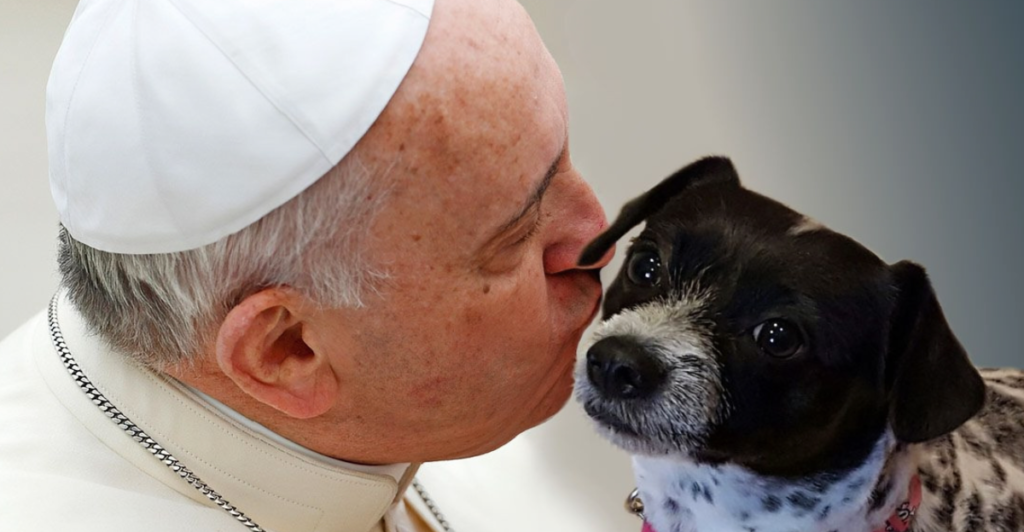
If you mention the name “pope,” papal vestments, international diplomacy, and theological discourse are likely the first things to come to mind. But in reality, Pope Francis, even after his recent death, has also become one of the most unlikely advocates for animals.
In a church often ruled by custom, he pushed forward in ways even dedicated Catholics find shocking. His actions haven’t always made headlines, but they reflect a deep, compassionate theology that includes the welfare of all living beings.
From encyclicals to papal audiences, the Pope used his influence to challenge indifference—not just toward humans, but toward animals. Let’s explore eight fascinating ways Francis broke tradition in defense of the voiceless.
1. Laudato Si’ – A Landmark for All Life
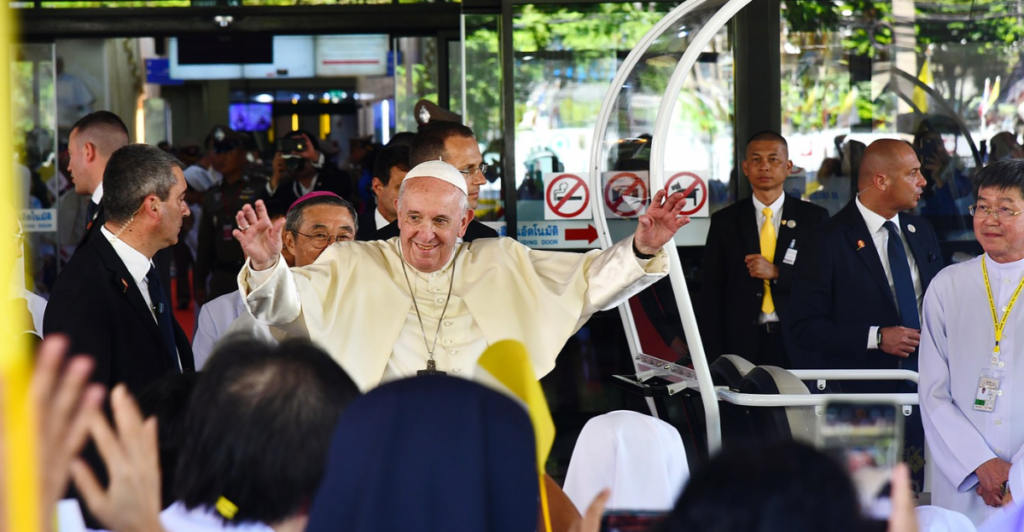
In 2015, Pope Francis released Laudato Si’, an encyclical that shook the theological and environmental world. Though mostly known for addressing climate change, this 180-page document included a radical concept: all creatures, not just humans, are part of God’s creation and deserve care.
He denounced the “tyrannical anthropocentrism” that leads people to treat animals as commodities. This was no minor statement—it was central to his case for a new kind of ecological spirituality.
The encyclical shifted concern for animals from niche activism into the mainstream of moral responsibility. By linking the abuse of nature to moral failure, Francis advanced the Catholic moral imagination—placing animal welfare on the same level as “taking care of our common home.”
2. Discussing Dogs and Heaven
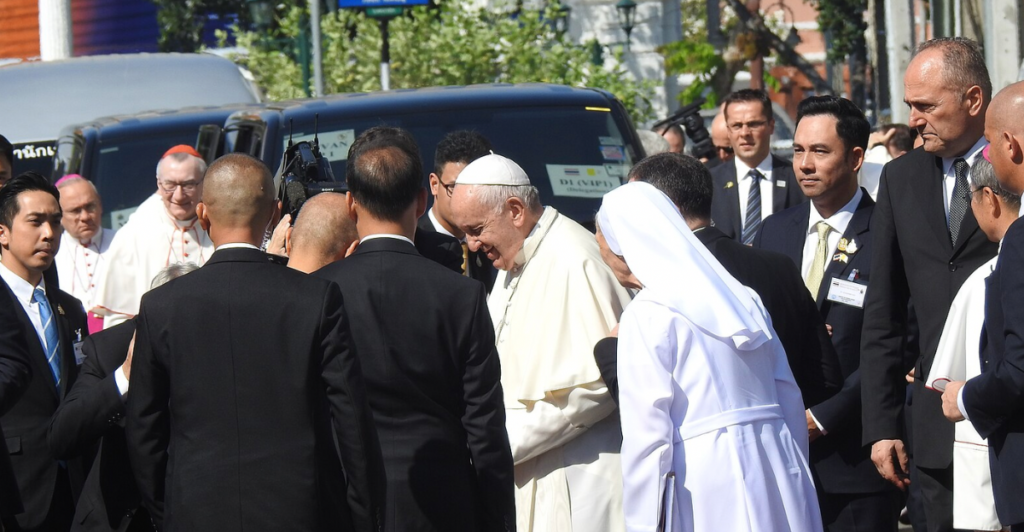
In 2014, Pope Francis reportedly comforted a sorrowful young boy who had lost his dog by saying, “One day, we will see our animals again in eternity.” While the Vatican later attested the quote had likely been paraphrased, the media backlash it engendered was significant.
Former popes had avoided such sentiments, more aligned with the opinion that animals do not possess eternal souls. But Francis opened the theological door, giving new life to public debate regarding animal afterlife.
It wasn’t official, but it humanized the papacy and suggested an expanded concept of salvation. For the first time in history, many animal lovers felt heard by the Church.
3. A Vegan Challenge for Lent

Later, in 2019, a young activist from Million Dollar Vegan publicly dared Pope Francis to go vegan for Lent, with a $1 million charity donation if he did. Although he didn’t take up the offer, the Pope’s response was significant: he commended the campaign’s green ambitions and highlighted ending animal suffering.
It was no mere diplomatic gesture—it indicated he was listening. The campaign picked up steam around the world, and although there was no full-throated support, Francis’s involvement gave it legitimacy.
That implied support made individuals think about the role of animal farming in climate and cruelty. For a Church that is generally reluctant to adopt new morality, his readiness to even consider the proposal was unprecedented.
4. Animal Welfare in Catechesis
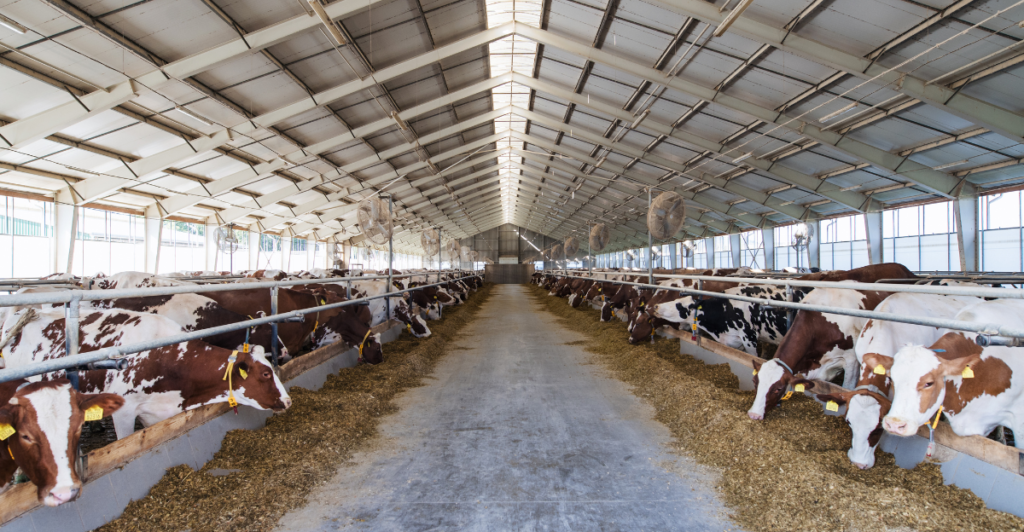
Unlike most predecessors, Pope Francis made animal welfare a part of his overall catechesis—the official teachings in his weekly audiences. He addressed animal exploitation as part of the larger “culture of waste.”
By linking cruelty to animals with consumerism and environmental exploitation, Francis transmuted the issue from sentimentalism into a deeper ethical crisis. He urged the faithful to shun “indifference” and observe the sanctity of life everywhere.
These teachings speak to millions of Catholics around the world, sowing seeds of compassion that transcend tradition. Animal welfare wasn’t an extremist agenda in Francis’ perspective—it was a measure of one’s relationship with God, nature, and conscience.
5. Ending Animal Testing at the Vatican

In a less prominently reported but revealing gesture, Pope Francis encouraged phasing out unnecessary animal tests in Vatican-owned research facilities. While not publicized widely, Vatican internal debates resulted in new ethical guidelines highlighting “reverence for life.”
They were prompted by Francis’s appeals for “integral ecology”—a phrase he used repeatedly linking environmental, human, and animal welfare. Differing from secular animal rights discourse, Francis bases such decisions on theology.
He challenged scientists to innovate without cruelty, emulating God’s love in their research. Slow as these institutional changes might be, they may foreshadow larger Catholic biomedical reforms of ethics.
6. Blessings Beyond Pets
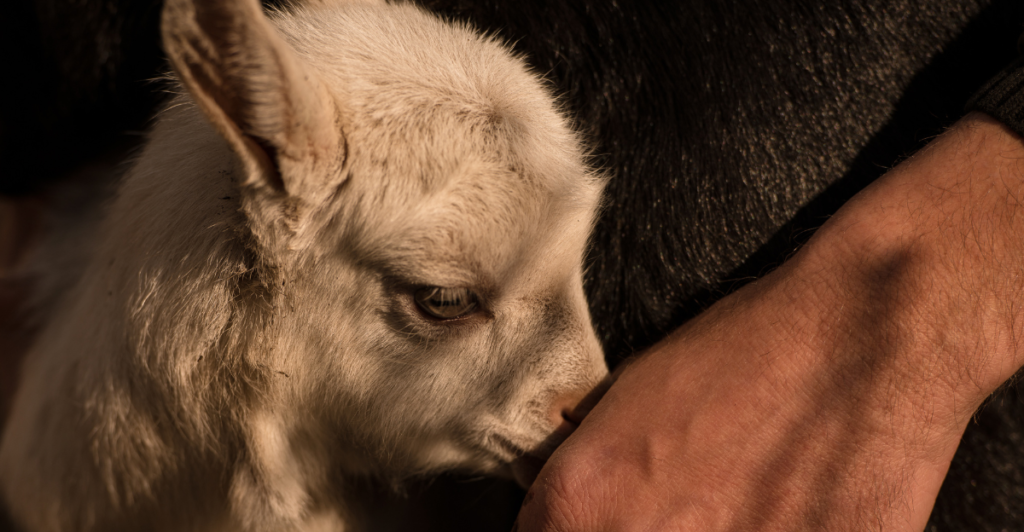
Animal blessings go back a long time, but Pope Francis reoriented their purpose and tone. On the Feast of Saint Francis of Assisi—his namesake—he hosted or began events blessing pets, farm animals, and endangered species.
He urged Catholics in 2020 to look at animals not only as utilitarian commodities in creation but also as ‘companions in creation’. These blessings contain some discreet shots at factory farming and environmental callousness as part of his rhetoric.
These are not ceremonial fill-ins; they’re miniature homilies on stewardship. They gently prod the faithful toward pity—not just for cats and dogs but for the pigs, cows, and bees that maintain ecosystems and food webs.
7. A Papal Criticism of Factory Farming
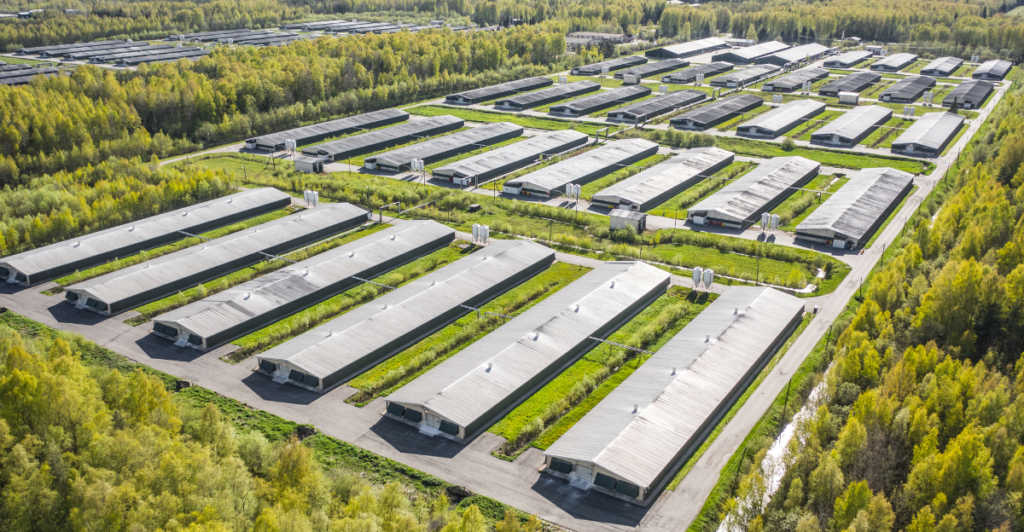
Although diplomatic in tone, Pope Francis consistently criticized industrial farming. In a 2023 speech to young people in Europe, he referred to factory farming as “a brutal economy of death” and tied it to climate change, antibiotic resistance, and moral insensitivity.
This position is contrary to several typical rural economies and even some Catholic schools that include agricultural programs. But Francis was unbending. He called the faithful to more ethical, sustainable eating.
While not advocating vegetarianism, he attempted to make us aware of what suffering means. For a tradition based on ritual feasts and meat traditions, his call was both powerful and dangerous. But he would not shun the appeal to conscience.
8. Dialogue with Animal Rights Activists
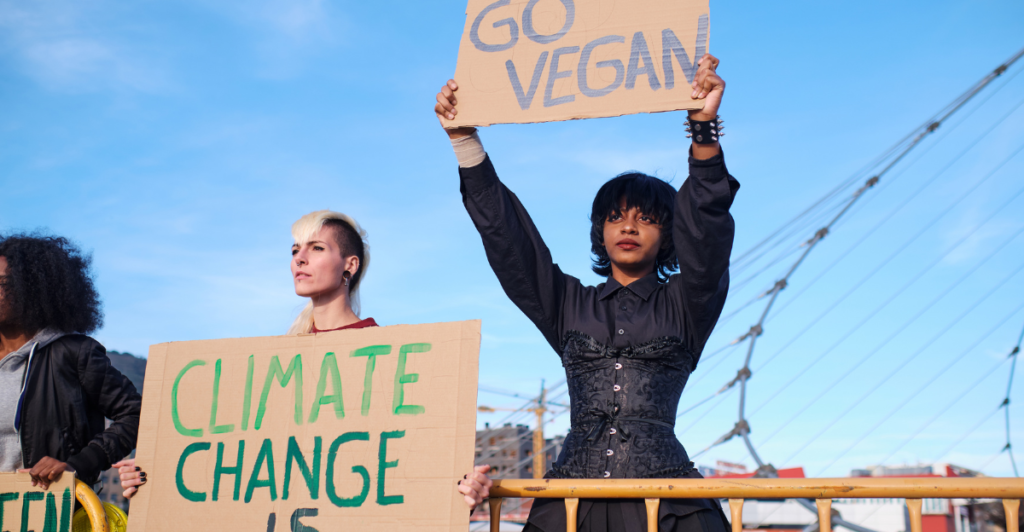
Earlier popes have tended to maintain a polite distance from secular animal rights activists. But Pope Francis made gestures towards dialogue. In 2021, he received delegates of several eco- and vegan groups.
Rather than rebuking them as ‘radicals’, he referred to them as “important voices in the cry of the Earth.” These dialogues sparked both hope and criticism. There are a few theologians concerned with doctrine compromise, yet Francis saw this as broadening moral vision.
For him, religion and activism are not mutually exclusive—rather, they can meet at compassion. His visionary spirit makes animal advocates perceive the Church as not an adversary but a possible ally.
A Legacy of Compassion
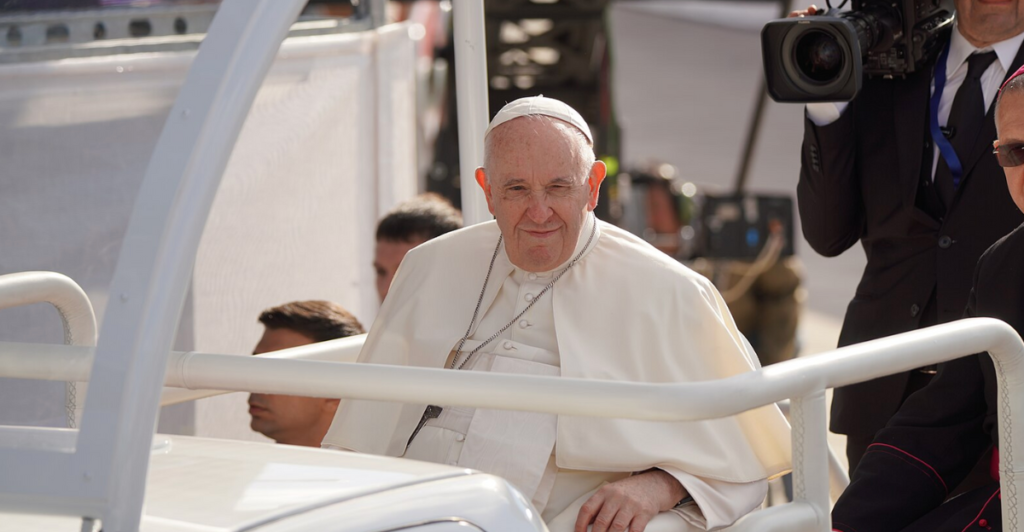
Pope Francis did not write a papal bull decreeing veganism, nor did he shut down slaughterhouses. But his legacy cannot be denied. He turned centuries of anthropocentric theology on its head, pushed world Catholics in the direction of a justice ethic, and cleared space in religious moral discourse for animals.
Whether blessing beasts of the field or denouncing cruelty in economic relationships, he consistently asked one question: What does love demand of us?
And by doing so, he broadened the Church’s moral imagination—inviting millions to redefine their relationship to the animal world. While arguments continue to rage on climate, diet, and ethics, this is certain: the Pope did not forget the animals.
Explore more of our trending stories and hit Follow to keep them coming to your feed!

Don’t miss out on more stories like this! Hit the Follow button at the top of this article to stay updated with the latest news. Share your thoughts in the comments—we’d love to hear from you!







